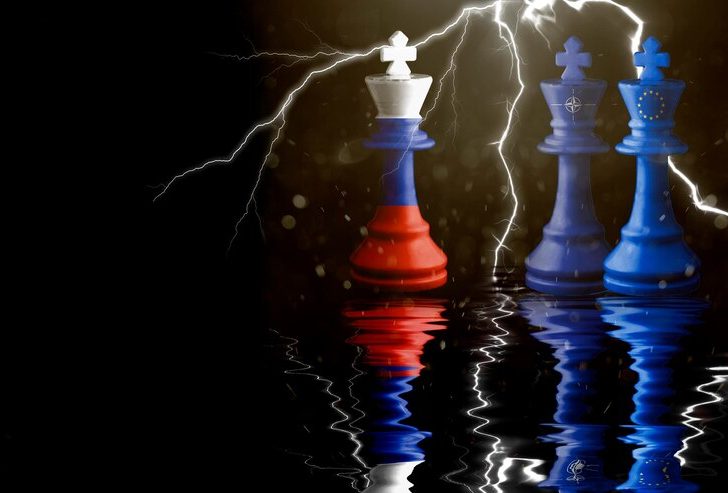
Have you ever pondered a sport that uniquely blends the cerebral depth of chess with the physical rigor of boxing? Welcome to the world of Chess Boxing. This intriguing hybrid sport demands not only physical strength and agility but also a sharp, strategic mind. It’s a true test of both brawn and brain, but what exactly is Chess Boxing?
It is an unconventional sport where two competitors battle it out both on the chessboard and in the boxing ring. Alternating between rounds of chess and boxing, it requires participants to maintain mental acuity under physical stress. Imagine a setting where one moment you’re calculating a checkmate and the next, dodging a left hook. This sport isn’t just about muscle or strategy alone; it’s the ultimate challenge that marries physical and intellectual prowess.
But what makes Chessboxing so captivating, and who are the brilliant minds and formidable athletes championing this sport? Step into the realm of Chess Boxing, where every move and every punch tells a story of discipline, strategy, and resilience. Discover more about this fascinating sport and its rising popularity. Are you ready to dive into a world where the mind and the muscle work in unison like never before?
Table of Contents
- 1 What is Chess Boxing?
- 2 History of Chess Boxing
- 3 Rules of Chess Boxing and Regulations of Boxing Matches
- 4 Scoring System and Point Allocation:
- 5 Major Chess Boxing Organizations
- 6 Prominent Chess Boxing Players and Champions
- 7 Chess Boxing: Is It Real?
- 8 What is the Meaning of Chessboxing?
- 9 Who is the Best Chess Boxer?
- 10 Conclusion
What is Chess Boxing?
Chess boxing matches typically consist of alternating rounds of chess and boxing, with each round lasting a predetermined amount of time. The game begins with a round of chess, where players compete using standard chess rules and aim to outwit their opponents through strategic moves and calculated decision-making. Once the chess round concludes, the competitors immediately transition to a round of boxing, donning gloves and engaging in physical combat in a boxing ring. The match continues with alternating rounds until a winner is determined either by knockout in boxing or checkmate in chess.
In recent years, boxing chess has seen a growth in popularity worldwide. The sport has gained attention through various tournaments and exhibitions held in different countries, attracting participants from diverse backgrounds. Its unique combination of intellectual and physical challenges has drawn interest from chess enthusiasts, boxing fans, and sports enthusiasts seeking something out of the ordinary.
History of Chess Boxing
It combines the intellectual intensity of chess with the physical demands of boxing. It challenges athletes to excel in both mental acuity and physical prowess, creating a unique blend of challenges that captivates players and spectators alike. With its origins in the early 2000s, chess boxing has evolved into a globally recognized sport, pushing the boundaries of what is possible in the realm of multi-disciplinary competition.
Year | Milestone/Event |
Early 2000s | Dutch artist Iepe Rubingh develops the concept of chess boxing |
2003 | First exhibition match held in Berlin, Germany |
2005 | World Chess Boxing Organization (WCBO) founded |
2008 | First official World Chess Boxing Championship held in Amsterdam |
2012 | First Chess Boxing Olympiad held in London, UK |
2013 | European Chess Boxing Organization (ECBO) founded |
2017 | The Chess Boxing Global Association (CBGA) founded |
2018 | Chess Boxing recognized as a sport by the International Chess Federation (FIDE) |
2019 | The first North American Chess Boxing Championship held in Montreal, Canada |
2020 | Chess Boxing Online tournaments emerge due to the COVID-19 pandemic |
2023 | Chess boxing gains global popularity and wider recognition |
Chess boxing, born in the early 2000s through the creative vision of Dutch artist Iepe Rubingh, has blossomed into a globally recognized sport that pushes the boundaries of multi-disciplinary competition. From its first exhibition match in Berlin in 2003 to the emergence of international organizations like WCBO and CBGA, it has gained traction and wider recognition. As it continues to captivate athletes and spectators worldwide, chess boxing stands as a testament to the thrilling fusion of intellect and athleticism, captivating both the mind and the body.
Rules of Chess Boxing and Regulations of Boxing Matches
Let`s delve into the rules and scoring system governing chess boxing matches, providing a detailed explanation of how the sport is played and how points are awarded in both chess and boxing rounds.
1. Round Structure:
Chess boxing matches consist of alternating rounds of chess and boxing. The number of rounds may vary, typically ranging from 6 to 11 rounds.
2. Time Controls:
Each chess round has a predetermined time control, usually ranging from 3 to 5 minutes per player. Boxing rounds typically last for 3 minutes.
3. Chess Moves:
Standard chess rules apply during the chess rounds. Players can make any legal move, including casting, promotion, and en passant. The use of chess clocks ensures fair time management.
4. Boxing Rounds:
Boxing rounds follow the rules of traditional boxing, including the use of protective gear such as gloves and mouthguards. The fighters engage in physical combat while adhering to boxing regulations.
5. Intermissions:
Between each round, there is a short intermission for players to transition between chess and boxing. The duration of intermissions is typically around 60 seconds.
6. Order of Rounds:
The match begins with a chess round, followed by a boxing round, and continues with alternating rounds until all designated rounds are completed.
Scoring System and Point Allocation:
1. Chess Scoring:
Points in chess boxing are awarded based on the outcome of each chess round. The most common scoring system allocates 1 point for a win, 0.5 points for a draw, and 0 points for a loss. The cumulative chess score at the end of the match determines the winner if no knockout occurs.
2. Boxing Scoring:
Boxing rounds are scored using the 10-point must system, similar to traditional boxing. Judges assess each boxer’s performance and award the round to the more dominant fighter with a score of 10 points. The opponent typically receives a lower score, such as 9 or fewer points.
3. Knockout Victory:
A knockout occurs when a boxer successfully incapacitates their opponent, causing them to be unable to continue the match. A knockout results in an immediate victory for the boxer who delivered the decisive blow, regardless of the chess score.
4. Technical Knockout:
If a referee determines that a fighter is unable to continue due to injury or inability to defend themselves, a technical knockout may be declared, resulting in a victory for the opposing boxer.
5. Decision Victory:
If the match goes through all rounds without a knockout or technical knockout, judges determine the winner based on a combination of chess and boxing scores. They declare the fighter with the higher cumulative score across both disciplines as the winner.
6. Draw:
In the event of a tie, where both the chess score and the boxing score are equal, the match is declared a draw.
7. Disqualification:
Violation of the rules, unsportsmanlike conduct, or failure to adhere to the regulations may result in disqualification, leading to an automatic loss for the offending boxer.
With its alternating rounds and intricate scoring system, chess boxing offers a thrilling and dynamic experience for both participants and spectators. By blending the intellectual rigor of chess with the raw athleticism of boxing, it stands as a testament to the remarkable fusion of mind and body in the world of sports. Whether you are a chess enthusiast, a boxing fan, or simply intrigued by the extraordinary, this sport presents an exhilarating display of skill, strategy, and physicality.
Major Chess Boxing Organizations
Chessboxing has gained recognition and popularity worldwide, thanks to the efforts of prominent organizations that govern and promote the sport. Here are three major organizations that play a crucial role in the development and regulation of chess boxing:
1. World Chess Boxing Organisation (WCBO):
The WCBO is one of the leading governing bodies in chess boxing. Founded in 2005, it is dedicated to organizing and overseeing professional chess boxing events on a global scale. The WCBO establishes rules, sets standards, and sanctions championships, ensuring fair competition and the advancement of the sport.
2. World Chess Boxing Association (WCBA):
Established to promote and foster the growth of chess boxing, the WCBA is another significant organization within the sport. Through its initiatives, the WCBA aims to expand participation, organize tournaments, and enhance the visibility of chess boxing on an international level. The association focuses on creating opportunities for athletes and building a strong community of chess boxers.
3. Chess Boxing Global (CBG):
As the name suggests, Chess Boxing Global has a global reach and plays a vital role in the worldwide promotion of this sport. Founded in 2017, CBG works to popularize the sport through various initiatives such as organizing exhibitions, facilitating international competitions, and collaborating with different stakeholders to elevate the profile of it.
These organizations, the WCBO, WCBA, and CBG, are instrumental in the governance, development, and global expansion of chess boxing. Their collective efforts contribute to the establishment of standardized rules, the organization of high-level competitions, and the cultivation of a vibrant chess-boxing community across the globe.
Prominent Chess Boxing Players and Champions
The world of chess boxing has seen the rise of remarkable athletes who excel in both intellectual prowess and physical agility. In this section, we highlight some of the most prominent chess boxing players and champions, celebrating their achievements and contributions to the sport. From their strategic brilliance in chess to their impressive boxing skills, these athletes embody the unique blend of talents required in the exhilarating sport of chess boxing.
Famous Men’s Boxing Chess Champions:
№ | Name | Nationality | Main Achievements | Boxing Weight Class |
1 | Frank Stoldt | Germany | Chess Boxing European Champion (2007, 2010) | Middleweight |
2 | Iepe Rubingh | Netherlands | Founder of Chess Boxing | Heavyweight |
3 | Tihomir Atanassov | Bulgaria | Chess Boxing National Champion (2012, 2015, 2018) | Lightweight |
4 | Andrei Ivanov | Ukraine | Chess Boxing Regional Champion (2016, 2019) | Light heavyweight |
5 | Guillermo Pampín | Spain | Chess Boxing International Champion (2014) | Featherweight |
Female Chess Boxer Champions:
№ | Name | Nationality | Main Achievements | Boxing Weight Class |
1 | Anna Rudolf | Hungary | Chess Boxing European Champion (2016) | Middleweight |
2 | Olga Vovk | Ukraine | Chess Boxing International Champion (2015) | Lightweight |
3 | Monika Socko | Poland | Chess Boxing National Champion (2013, 2016, 2019) | Featherweight |
4 | Iweta Rajlich | Poland | Chess Boxing National Champion (2017, 2020) | Bantamweight |
5 | Sofia Petrova | Bulgaria | Chess Boxing Regional Champion (2018, 2021) | Flyweight |
These outstanding chess-boxing players have left an indelible mark on the sport through their remarkable achievements and dedication. From securing multiple world championship titles to breaking barriers in gender-specific divisions, they embody the essence of chess boxing’s unique fusion of mental acuity and physical prowess. As the sport continues to evolve, these notable athletes serve as inspiration to aspiring chess boxers and contribute to the growth and excitement of this captivating discipline.
Chess Boxing: Is It Real?
Chess boxing has gained recognition and acceptance within the sporting world, challenging traditional notions of what constitutes a sport. It has carved out its place as a legitimate discipline, captivating both participants and spectators alike.
The fusion of two seemingly contrasting activities, chess, and boxing, raises eyebrows and invites scrutiny. Skeptics may question whether chess boxing can truly be considered a legitimate sport. However, it is essential to recognize that the definition of a sport is not confined to a single set of criteria. Rather, sports encompass a wide spectrum of activities that involve competition, skill, and physical exertion. In this regard, it ndeniably meets the criteria of a sport, as it combines the mental intensity of chess with the physical demands of boxing.
Chessboxing has garnered recognition from various sporting bodies and organizations. The World Chess Boxing Organization (WCBO), founded in 2005, has played a significant role in establishing standards and organizing official championships. In 2018, chess boxing received a notable endorsement when the International Chess Federation (FIDE) recognized it as a sport. Such recognition further solidifies its legitimacy within the sporting realm and opens doors for further growth and development.

Chess boxing has evolved from an eccentric pastime to a respected sport, captivating audiences with its mix of mental agility and physical endurance. This unique sport, known for its alternating rounds of chess and boxing, is gaining traction and a dedicated following. Although it’s not as mainstream as other sports. It has carved out a niche for those who appreciate its innovative blend of intellect and athleticism. Recognized by governing bodies and growing in popularity, chess boxing is a testament to the exciting possibilities of multi-disciplinary competitions.
What is the Meaning of Chessboxing?
The meaning of chess boxing lies in its ability to combine two seemingly contrasting activities, chess, and boxing, into a single sport. It represents the fusion of mind and body, challenging participants to demonstrate strategic thinking, decision-making, and physical combat skills.
Who is the Best Chess Boxer?
Determining the best chess boxer is subjective and can vary depending on different factors such as championship titles, performance records, and individual opinions. Prominent chess boxers such as Max Orlov, Frank Stoldt, Nikolay Sazhin, Tihomir Atanassov, and others have achieved notable success in the sport, but it is challenging to single out one individual as the definitive best chess boxer.
Conclusion
Chess boxing has emerged as a captivating and legitimate sport, defying conventional boundaries. Firstly, in discussing its recognition and acceptance within the sporting world, it is evident that chess boxing has solidified its place as a unique discipline. Additionally, by combining the intellectual intensity of chess with the physical demands of boxing, this sport presents a remarkable fusion of mental acuity and physical prowess.
Whether you’re a beginner looking to learn the basics or a seasoned athlete seeking to enhance your skills, our guides offer valuable insights and tips to help you excel in your chosen sport. Dive in, explore our articles, and unlock the knowledge to take your performance to the next level.

I’m Heorhii Rysak, a go-to sports enthusiast and blogger. My fascination with sports began in my childhood with karate, setting the foundation for my love of physical fitness. Over the years, I’ve delved into various disciplines, including martial arts and CrossFit, and developed a passion for tennis. I bring a wealth of practical experience to my blog, where I share equipment reviews, workout plans, and fitness advice. My goal is simple: to inspire and assist you in your journey toward better health and performance.